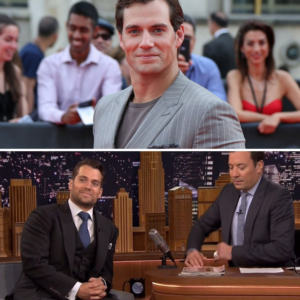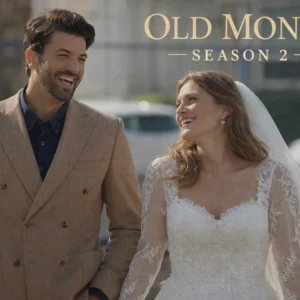Within the boundaries of the crime-solving genius genre, “Cross” represents the dark yin and “The Lincoln Lawyer” the bright yang.

On the page, Alex Cross, the embittered psychologist created by James Patterson, leads his fellow fictional crime solver Mickey Haller, the flamboyant lawyer created by Michael Connelly, 32 novels to seven. On the small screen, the tables turn: The Haller series “The Lincoln Lawyer” debuted its third season last month on Netflix while the first season of “Cross,” announced nearly five years ago, finally arrives Thursday on Amazon Prime Video.
But who’s counting? There appears to be endless space in the current marketplace for brilliant but wounded investigators, and Haller and Cross share an essential marker of the contemporary crime-drama hero. Their personal traumas — Cross’s loss of his parents and wife, Haller’s issues with his father and with addiction — generate much of the tension in their stories, reducing the need for real complexity of personality or the clever unraveling of mystery.
Formulas can be executed in different ways, however, and the two shows provide radically different viewing experiences. Within the boundaries of the problematic-genius formula, “Cross” represents the dark yin and “The Lincoln Lawyer” the bright yang. “Cross” goes for self-consciously heavy, “The Lincoln Lawyer” for perilously light. Most significant, perhaps, “Cross” is out to sanctify its protagonist; “The Lincoln Lawyer,” while it provides Haller with a full allotment of anguish, never asks us to feel sorry for him.
The creator of “Cross,” Ben Watkins, previously created the eccentric neo-noir “Hand of God,” also for Amazon. The penchants he demonstrated then for hair-raising imagery, and for throwing together tones and styles, carry through to the new show. Choosing not to base “Cross” on a specific Patterson novel (unlike film adaptations including “Kiss the Girls” and “Along Came a Spider”), Watkins frees himself to cook up a lurid but not very exciting stew of serial-killer horror, buddy-cop action, social-justice point-making and sentimentality.
Cross, played by Aldis Hodge (“Leverage”), is a District of Columbia police detective with a Ph.D. in psychology. We meet him on the occasion of his wife’s murder, and for eight episodes the character shuttles between dour grief and bellowing anger; Hodge, usually a magnetic performer, settles on a glaring, unmediated intensity.
The A plot, in which Cross investigates the murder of a defund-the-police activist, blossoms into a richly nonsensical “Silence of the Lambs”-style fantasia. Common sense is left far behind, in matters large and small; at one slap-your-forehead juncture, a cop yells, “He could be anywhere!” seconds after the killer escapes, while his car can still be heard in the near distance.
A few performers, including Eloise Mumford as one of the killer’s targets and Isaiah Mustafa as Cross’s levelheaded detective partner, avoid the general tendency toward overacting. And the show’s mode of enervated sensationalism will appeal to some viewers. Even they may blanch at the more sadistic flourishes, though, which include involuntary sessions of plastic surgery and dental work.
Image

“The Lincoln Lawyer,” with Manuel Garcia-Rulfo, brings a lightness to the crime-drama formula.Credit…Netflix
There are no such worries with “The Lincoln Lawyer,” a straightforward sunny-SoCal legal drama that tries, with mixed success, to apply a light comic-romantic touch to hard-boiled mystery. Haller, played by the Mexican actor Manuel Garcia-Rulfo, is a classic noir type, a rule-bending, cynical idealist whose hubris leads him to put himself and those around him in danger.
The show kicked off in 2022 with a pilot script by David E. Kelley, who is credited as creator; the showrunner from the start has been Ted Humphrey, a “Good Wife” veteran. They consistently find a satisfying midpoint between network-style hackiness and peak-TV overthinking; superficiality is balanced by professionalism. The characters care about style and rhythm, and the show provides them.
It also has the great advantage — one it shares with another series based on Connelly’s novels, Amazon’s “Bosch: Legacy,” featuring the Haller character’s half brother, Harry Bosch — of being filmed on location in and around Los Angeles. When Haller goes out for a sandwich, Garcia-Rulfo is sitting in the actual Cole’s French Dip on Skid Row. “Cross” makes a fetish of the D.C. institution Ben’s Chili Bowl, but Hodge and Mustafa are served their half smokes on a lifeless set in Ontario. (The L.A.-noir bona fides of “The Lincoln Lawyer” are further enhanced by the charming presence in a supporting role of Elliott Gould, who played Philip Marlowe in Robert Altman’s magnificent “The Long Goodbye.”)
Haller, who began as a swank version of an ambulance chaser, has been developing a conscience as the show goes along. In the 10-episode Season 3, based on Connelly’s novel “The Gods of Guilt,” Haller’s pangs are acute because of his complicity in the death of a prostitute he had befriended. In a clever bit of plotting, he reluctantly agrees to defend the man accused of murdering her, which forces him and his team to find the real killer.
The reversals and breakthroughs of the case are as stylized as those in any crime drama. But the relaxed approach and generally unfussy writing of “The Lincoln Lawyer” let it feel more tethered to everyday life, and closer to normal human emotion, than most shows in its category. Compared to “Cross,” it’s practically a documentary.





